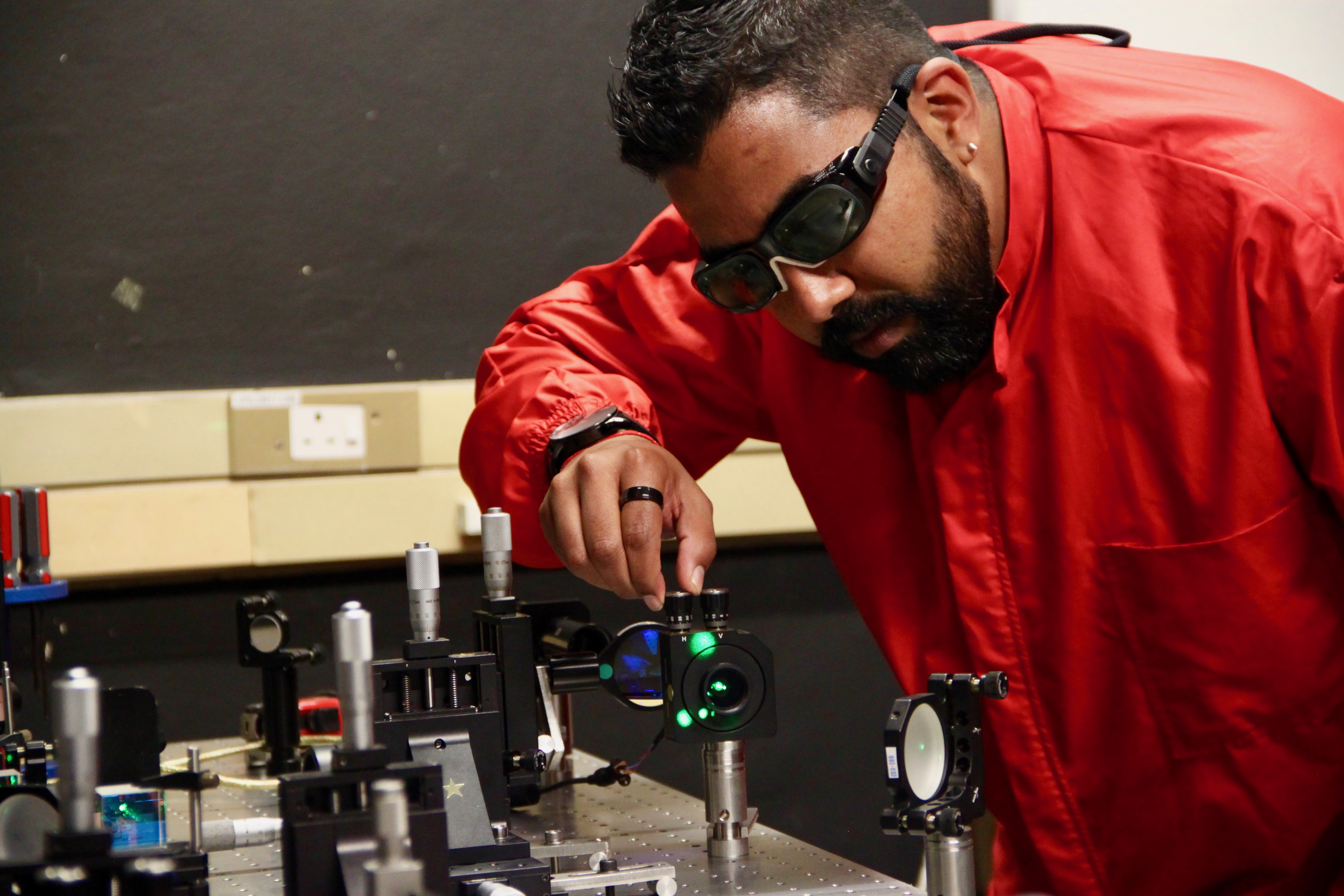Advanced Search
Search Results
The CSIR has developed a polymer composite solution for one of Africa’s largest steel pipe manufacturers, Hall Longmore, which takes them one step closer to offering the South African water industry a localised push-fit application for pressurised steel pipelines.
Using the DSI-CSIR Nanomaterials Industrial Development Facility, CSIR researchers developed a uniquely formulated polymer composite material for the steel pipe manufacturer and performed coating trials at their facility.
“The coating trials proved to be a success and an indication of a fruitful collaboration between local institutions working together to localise technology solutions for industry,” says Managing Director of Hall Longmore, KC Van Rooyen.
The CSIR is putting together a forecast of the upcoming US presidential elections to conduct a successive test of the performance of its election prediction model into the US electoral system. This follows a successful trial during the US 2016 presidential elections.
The CSIR’s election prediction model relies on two core principles relating to voting behaviour of the electorates and the order in which voting results are declared on the night of the Election Day. These two principles combined allow the CSIR team to group voters (or rather voting districts) together based on their past voting behaviour (using a statistical clustering method) and to then expect that any changes to voting behaviour in the new election will be fairly similar within each group.

A journal paper titled Brightness Enhancement in a Solid State Laser by mode of Transformation by the CSIR’s Dr Darryl Naidoo, has been published in the Optical Society’s high impact journal Optica. His published work formed part of his PhD studies in which the research idea was developed by Prof. Andrew Forbes of the University of the Witwatersrand and theoretically developed by his CSIR colleague, Dr Igor Litvin.
Media invite
The Chairperson of the Board of CSIR, Prof Thokozani Majozi, together with the CEO, Dr Thulani Dlamini, held a media briefing to provide an update on some of the latest strategic developments in the organisation, including new key research projects.
The mandate of the CSIR requires the organisation to undertake directed scientific and industrial development research to improving the quality of life of the people of South Africa.
Product and process development incubation support to Small, Medium and Micro-sized Enterprises (SMMEs)
This EoI call is targeted at SMMEs entering the biomanufacturing sector to grow and expand biomanufacturing capacity to meet market demands. Biomanufacturing entails the use of bioprocess technology (e.g. fermentation) to produce enzymes, industrial biologics, biopharmaceuticals, proteins, probiotics, bio-control agents and diagnostic reagents. Read more...
On Wednesday, 28 June, young researchers from the CSIR showcased groundbreaking Fourth Industrial Revolution(4IR) innovations aimed at improving South Africa's healthcare system in remote regions.
To address the issue of limited diagnostic resources in rural areas, the CSIR is developing a machine learning-powered diagnostics system, a technology that combines cutting-edge machine learning algorithms to autonomously help medical professional diagnose diseases with better accuracy and speed.
CSIR researcher at APC, Nomvuyo Nomadolo, spent two weeks at the University of Pisa for nanocellulose functionalisation experiments, which is a key part of the project, currently focused on the chemical functionalization and characterization of nanocellulose.
The CSIR also hosted Prof. Alessandra Operamolla, and Prof. Jeanette Lucejko from the University of Pisa from 20–24 November 2023. The visit revolved around project discussions on the characterization of chemically modified cellulose and the preparation of membranes.
Hundreds of learners who attend the CSIR annual career day have described it as an eye opener in learning more about various careers in science, technology, engineering and mathematics (STEM).
This year, the event was used to highlight the impact and effects of climate change in South Africa. Learners were exposed to various technologies developed by the CSIR to curb climate change. This is in line with the 2019 National Science Week (NSW) theme “Facing the harsh realities of climate change”.
The maritime industry has the potential to make a significant contribution to poverty reduction and human welfare, as well as provide economic opportunities to benefit South Africans. This is taking into consideration that South Africa has more ocean space, including its exclusive economic zone, than land area.
To realise the sustainable industrialisation of the oceans to the benefit of all, the CSIR is seeking partners to fund a South African Maritime Industry Baseline Study. This foundational study is critical to South Africa’s participation in the global maritime arena. Read more...
CSIR and the United Nations Development Programme (UNDP) will strengthen research, development and innovation (RDI) into the fourth industrial revolution and digitisation, and promote digital inclusion and the creation of socioeconomic opportunities in information and communications technology (ICT) in South Africa.
In August 2021, the CSIR Chief Executive Officer, Dr Thulani Dlamini, and the Resident Representative of UNDP South Africa, Dr Ayodele Odusola, signed a Memorandum of Understanding to deepen their collaboration, which will see the parties working together on scientific and technological research to improve the performance of the economy and, essentially, address the triple challenges of poverty, inequality and unemployment in the continent.

